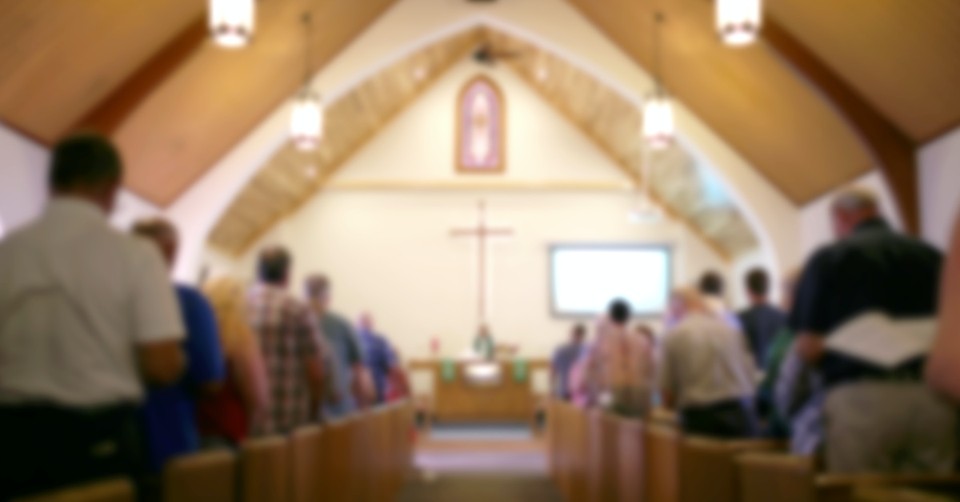3 Reasons You Can’t Be Close to God and Distant from the Church

What would you say if I told you that one of the greatest indicators of your faith is your relationship with the church?
The odds are, you’ve left a church because you’ve moved, were hurt by people in church, disagreed with how something was handled, didn’t like one of the pastors, heard some disturbing rumors, or the coffee was just bad. Anytime you leave a church, it complicates your relationship with the church as a whole. You become a little more guarded, maybe a little more distant, more cautious, you just need time to heal, or you leave for good and just have a personal faith detached from the church.
Obviously, it’s not all bad though. You’ve also watched people give their lives to Christ, get baptized, and repair their marriages with the help of others. You’ve been cared for and invested in by people in the church. You’ve deepened your faith because of some great messages, intentional discipleship, a great small group or just wonderful people who had the courage to point you back to God when you were walking away.
You’ve probably experienced both the good and bad in church — which is why our relationship with church is so complicated — so where does that leave your relationship with the church? Or maybe we should say, where does that leave your relationship with God? Let me try to say it as clearly as I can:
Your relationship with the church is a reflection of your relationship with God.
If that sounds a little odd, surprising, or makes you disagree inside, let me see if I can prove it to you with an encounter between Peter and Jesus.
Photo Credit: ©Getty Images/Christin Lola
“My Church”
Whatever your relationship with the church is now, my hope for you is that you can someday say about a church you go to that it is “My Church.” Meaning you can confidently say “This is my church, and these are my people. I’m an engaged member of this community and I’m invested in our future.”
The “My Church” language actually comes from Jesus Himself. In an exchange with Peter somewhere in the middle of Jesus’ ministry (Matthew 16:13b-19), Jesus asks, a pivotal question: “Who do people say the Son of Man is?” The disciples respond to Jesus with the rumors and murmurings of the people: “They replied, ‘Some say John the Baptist; others say Elijah; and still others, Jeremiah or one of the prophets.’” And then He hits them with the question in life: “‘But what about you?’ he asked. ‘Who do you say I am?’” This is the big question that we all have to answer at some point in our life. Peter, luckily, gets this one right:
“Simon Peter answered, ‘You are the Messiah, the Son of the living God.’ Jesus replied, “Blessed are you, Simon son of Jonah, for this was not revealed to you by flesh and blood, but by my Father in heaven. And I tell you that you are Peter, and on this rock I will build my church.’”
Did you catch that? We often center on if this scripture proves the beginning of the Catholic Church, or if this verifies Peter as the first of a new successive line of a singular church leader; but all of these miss the overall point: that the Church belongs to Christ, and it is comprised of those who have made this proclamation of faith that Jesus is the Messiah.
Here’s another way of thinking about the implications of Jesus’ statement:
Faith Check: You can’t be close to God and distant from the Church, because the first one to say this is “My Church” is Christ.
The church, the body of believers that you are a part of, belongs to Christ. You belong to Christ. We are His first and foremost. Attempting to reject or distance ourselves from the church is to try to distance ourselves from Christ. We really can’t do that, and we shouldn’t want to.
Three important realizations for Christians:
A popular trend over the past decade is to have a “spiritual life” or to retain one’s faith without being a part of a regular Christian community. Popular headlines have made the rounds saying some version of how people are “leaving the church, but not leaving their faith.”
This is a bit puzzling in more than a few ways, but here are three big reasons why our relationship with God can’t be separated from our relationship with the church.

1. The Church is where every Christian realizes they are part of God’s people, not just a person following God.
The desire of God has always been to have a people not just a bunch of little autonomous individuals going around doing their own thing “for the glory of God.” Giving glory to God was, and is, a communal activity. For the nation of Israel, God blessed, punished, made covenants with, and expected loyalty from them as a people:
"They will be my people, and I will be their God. I will give them singleness of heart and action, so that they will always fear me and that all will then go well for them and for their children after them. I will make an everlasting covenant with them: I will never stop doing good to them, and I will inspire them to fear me, so that they will never turn away from me. I will rejoice in doing them good and will assuredly plant them in this land with all my heart and soul." Jeremiah 28:38-41
And then this idea of a people was extended to the gentiles, to everyone who put their faith in Christ. For most of history, Gentiles and Jews were enemies of one another, and the gentiles seen as enemies of God. But God planned to unite all who would call Jesus their Lord and their God together, so that there would be one humanity, under Christ:
"[Christ’s] purpose was to create in himself one new humanity out of the two, thus making peace, and in one body to reconcile both of them to God through the cross, by which he put to death their hostility." Ephesians 2:15-16
Becoming and being a Christian means that we shouldn’t and can’t walk in our faith alone.
Photo Credit: ©Sparrowstock
2. The Church is where diversity and unity come together to glorify God.
The Christian Church is the most unique assortment of people in the world. For the most part, every other world religion is centered around a particular culture, a geographical area, or has as its majority, a certain race. Christianity, however, is found in just about every country, in just about every culture, and has representation in almost every race. It is truly diverse in its scope and inclusivity. Additionally, there is an overarching unity underneath the head of Christ, by the power of the Spirit. Across these many cultures, geographical areas and races, there is an overarching unity that all are a part of the body of Christ:
"Just as a body, though one, has many parts, but all its many parts form one body, so it is with Christ. For we were all baptized by one Spirit so as to form one body—whether Jews or Gentiles, slave or free—and we were all given the one Spirit to drink. Even so the body is not made up of one part but of many." 1 Corinthians 12:12-14
Paul goes on to say that each member of the body of Christ — every Christian — has an integral role to play in building up the church. We do not all have the same gifts, roles, experience, backgrounds, or needs — but one this is very clear according to Paul, that we need each other.
We need the diversity of gifts, talents, experience, or anything else that every Christian brings to the community. Someone else needs you!

3. The Church is who Christ gave His life for.
This may come as a bit of a shock, but Jesus had bigger plans than saving you personally. You’re included for sure, but it’s not about you, and it’s not about me:
"For God so loved the world that he gave his one and only Son, that whoever believes in him shall not perish but have eternal life. For God did not send his Son into the world to condemn the world, but to save the world through him. Whoever believes in him is not condemned, but whoever does not believe stands condemned already because they have not believed in the name of God’s one and only Son." John 3:16
God’s grandiose plan was not for you and me. It was for the world to have the offer to believe in His Son. And all who did, became members of the Church. As Paul would later comment on submission, which many have used to describe marriage, Paul is actually talking about the profound mystery between the church and Christ:
"Husbands, love your wives, just as Christ loved the church and gave himself up for her to make her holy, cleansing her by the washing with water through the word, and to present her to himself as a radiant church, without stain or wrinkle or any other blemish, but holy and blameless…" Ephesians 2:25-27
Again, in Acts 20:28, Paul would comment to the Ephesians elders on his departure:
"Keep watch over yourselves and all the flock of which the Holy Spirit has made you overseers. Be shepherds of the church of God, which he bought with his own blood."
So, while your faith may be deeply personal, and your choice to follow God may have been private, you joined the people of God, His Church. Your faith can and never should be separated from the Church.
Here are three final thoughts to leave with:
You should be active in the community of believers. When you became a Christian, you joined the largest community in the world, find a local church to not only attend but be active in.
You should celebrate the diversity and unity of the Church. Learn and cherish the different cultures that are represented, the gifts that different people bring, and the unity that can only come through the Spirit.
You should love God’s church because He gave His life for her. This one is probably the most important, because the church isn’t always lovable because of the people. People are messy, mean, and sometimes just hard to manage. But through Christ, she is a beautiful bride worth loving.
Photo Credit: ©Sparrow Stock
Originally published February 25, 2022.





